Reclaiming the Land: Ha Senkoase’s Journey to Resilience Through Faith and Climate-Smart Agriculture
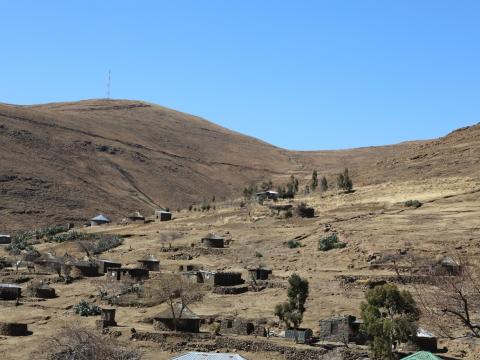
By: Reentseng Phephetho, Communications and Digital Officer, Lesotho
A Resilient Spirit in Ha Senkoase
In the remote, mountainous village of Ha Senkoase in Lesotho’s Mokhotlong district, lives Paseka, a 68-year-old man with a resilient spirit and an unshakeable determination to transform his challenging environment. His home, nestled along the rugged mountainside, sits in one of the most erosion-prone areas in the country. Mokhotlong faces relentless soil erosion, with Lesotho as a whole losing nearly 40 million tons of soil each year. Overgrazing and deforestation have left the grazing lands barren, with up to 70% of pastures degraded—a critical blow for communities dependent on livestock.
Paseka’s Commitment to Reclaiming the Land
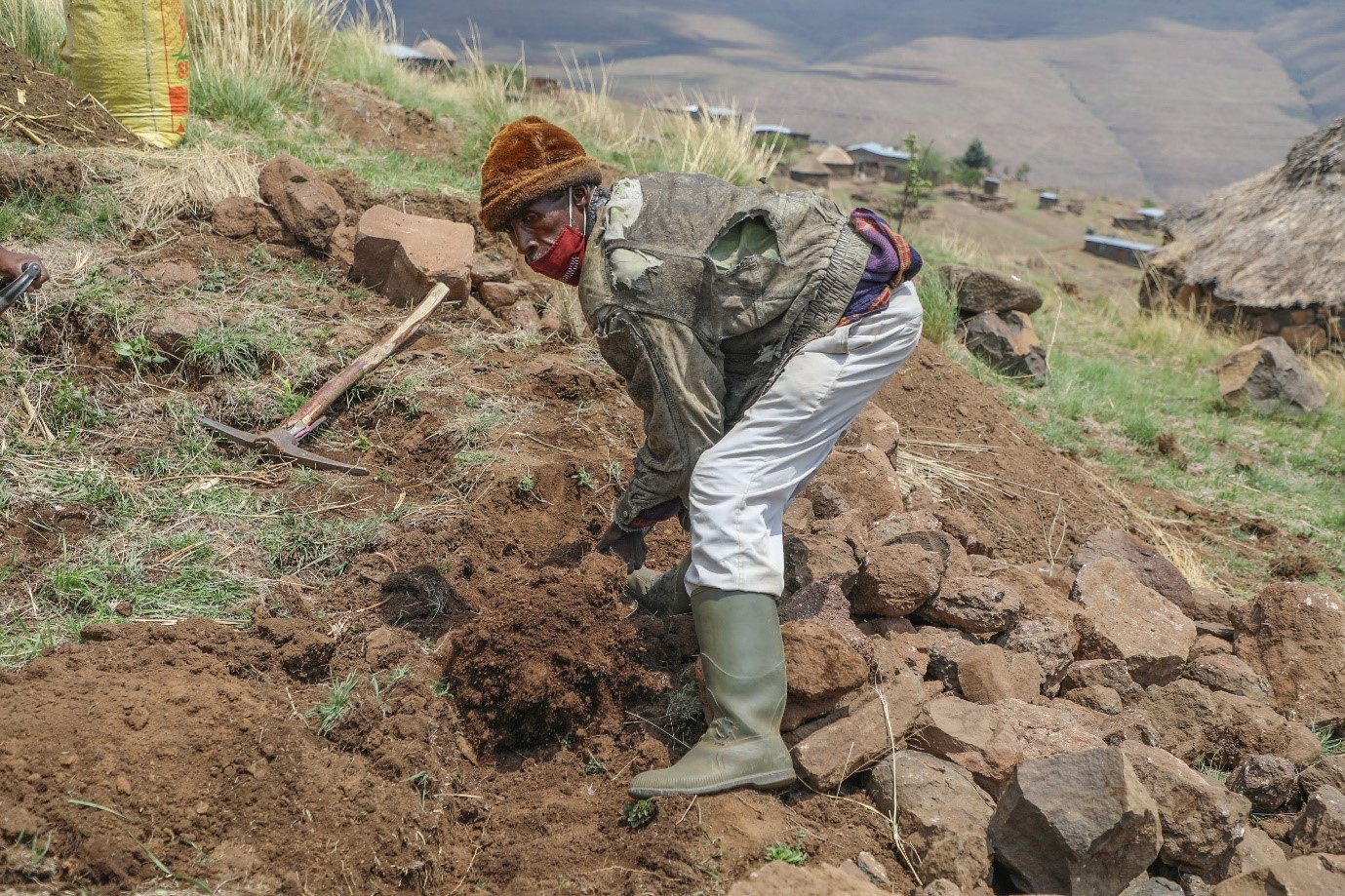
Despite these challenges, Paseka has not let adversity hold him back. With his deep commitment to protecting “God’s creation,” he began a personal journey of regreening his land, planting grass and other vegetation to reclaim the soil. “God created the environment for us to take care of it,” he says, reflecting on his dedication. “It was never easy. I faced challenges with animals grazing on my land, and floods coming from the mountains would wash everything away. So, I dug a long furrow to divert the running water from my yard.”
World Vision’s Support for Paseka’s Efforts
Paseka’s journey of restoration did not go unnoticed. Recognizing his efforts, World Vision Lesotho, through its Faith Partnerships for Environmental Sustainability and Climate Action (ESCA) Project, saw an opportunity to amplify his impact. The ESCA Project empowers faith leaders and communities to build resilience to climate change while fostering child participation in climate adaptation and sustainability efforts. Led by Pastor Tjabulane Mpenyane, a respected faith leader in Ha Senkoase, World Vision gathered the community for a hands-on training session at Paseka’s home.
Climate-Smart Agriculture: A Path to Sustainability
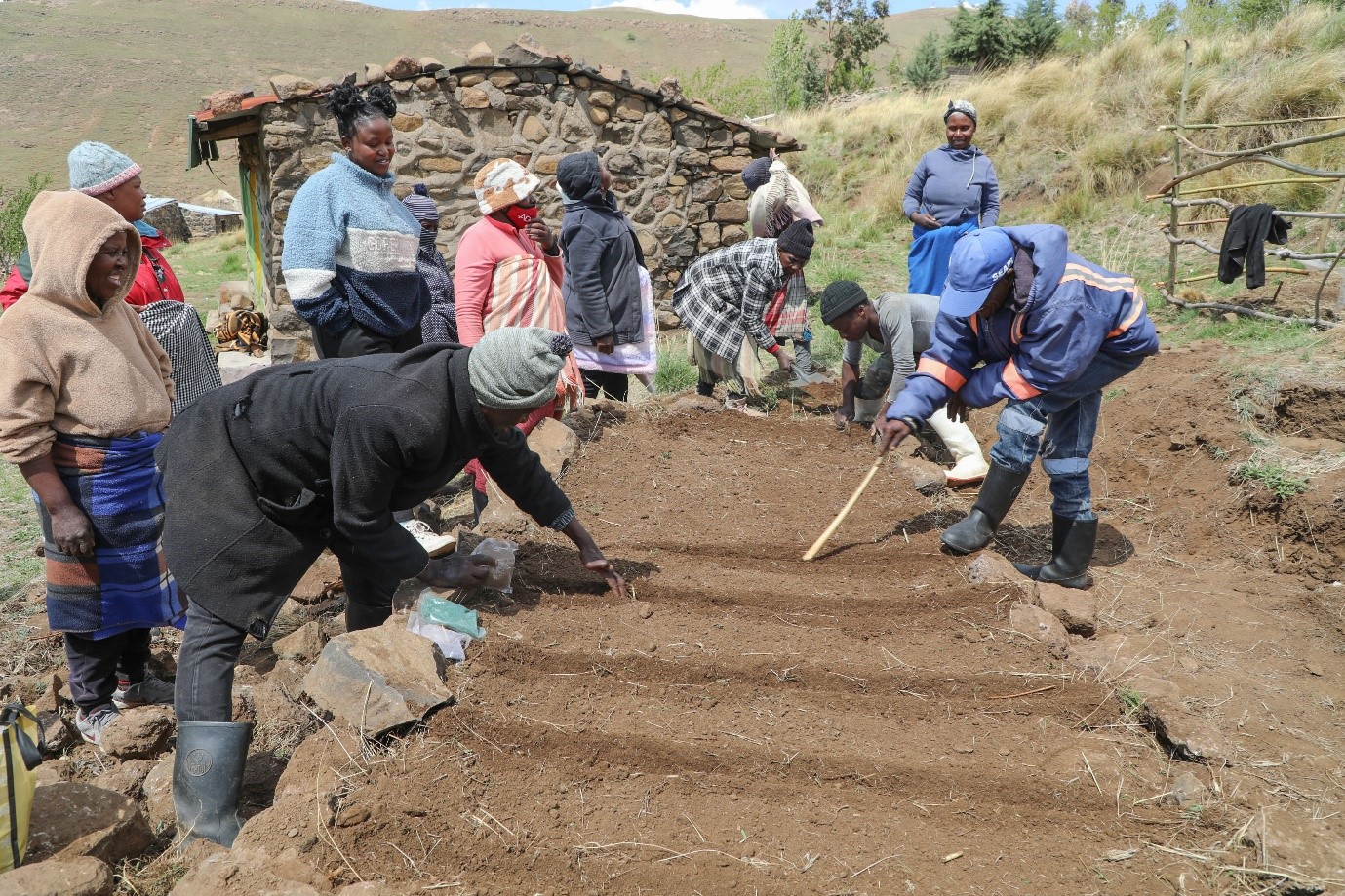
The training session introduced climate-smart agriculture practices to the community, where participants constructed a trench garden from scratch, filling it with vegetable plants. The innovative gardening technique involves digging trenches to preserve water and nutrients for plants, making it a valuable method for families facing water scarcity and soil erosion. “I feel really blessed to have been recognized for doing good,” expressed Paseka. “I truly thank World Vision for what they have done here today, and I promise to care for this garden and make many more, so my family will never run out of food.”
A Community United in the Fight Against Hunger
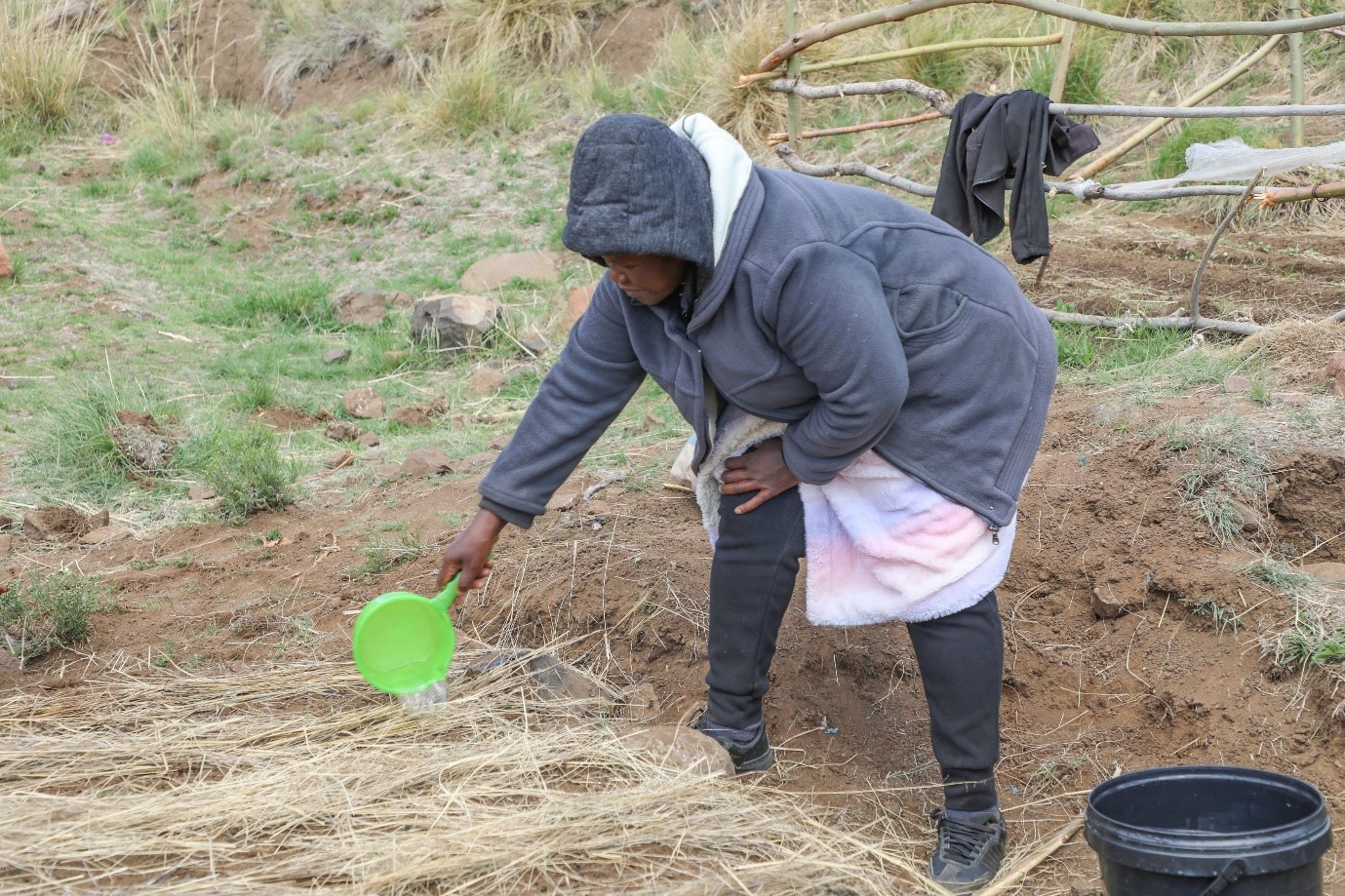
World Vision provided seeds to over 25 community members, encouraging them to replicate the trench garden technique to grow their own food. In addition to the hands-on training, the visit included discussions on the impact of climate change, with a focus on how sustainable practices can help reverse environmental degradation. One community member, Manchebe, reflected on the significance of the training: “We feel blessed as the community of Ha Senkoase. We used to wonder what Mr. Paseka was up to, keeping grass in his yard. Today, we learned the importance of it and the new way of gardening. We are hopeful that our children will never go hungry with this skill.”
A Holistic Approach to Environmental Education
The training was not only about practical techniques but also a holistic education on environmental sustainability. “We now understand how our actions have been contributing to land degradation, and today was a real eye-opener,” remarked Mathato, a participant in the training. The importance of sustainable practices was clear: through small but impactful actions, communities could begin to reverse the damage done to their land.
Faith Leaders Leading the Charge for Change
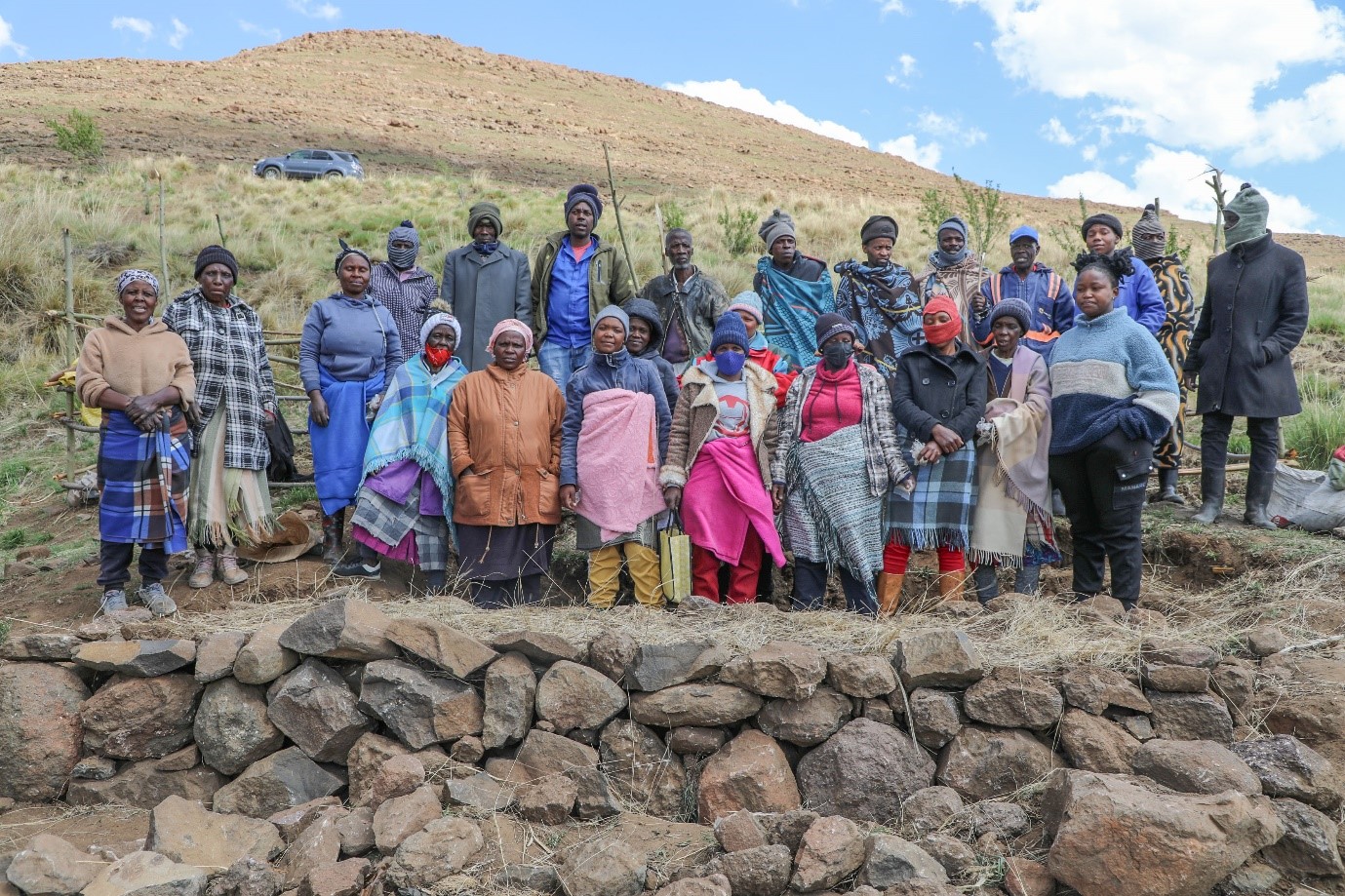
Pastor Tjabulane echoed the community’s renewed commitment: “I will do my best to ensure that every community member understands climate change and environmental sustainability so that we can work together to fight it. With this knowledge, I am determined to see every family here and beyond practicing these gardening skills to build resilience and combat hunger.”
Ha Senkoase’s Journey to Resilience
The community’s collective efforts, fueled by faith and a deep desire to protect their environment, have already begun to bear fruit. Ha Senkoase’s residents, now equipped with new skills and a profound understanding of climate change, are on a path toward a more resilient and sustainable future. Thanks to Paseka’s pioneering spirit and World Vision’s support, Ha Senkoase is a shining example of how local action, when fueled by faith and knowledge, can lead to transformative change in the face of adversity.
A Vision for a Sustainable Future
The story of Paseka and the Ha Senkoase community serves as a reminder that, even in the most challenging circumstances, hope, resilience, and sustainability can thrive when communities unite with a shared vision for a better future.